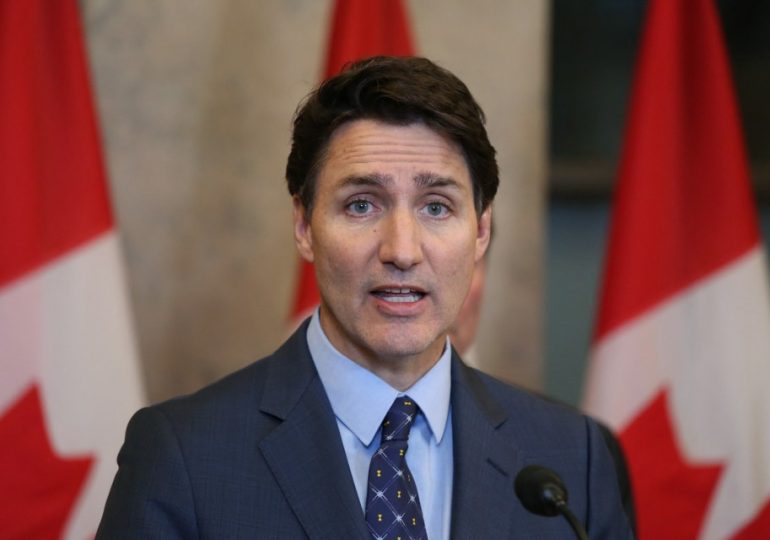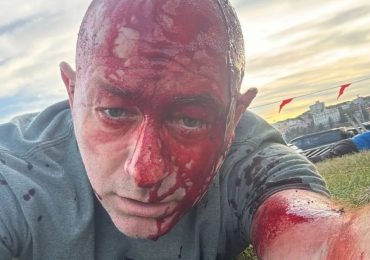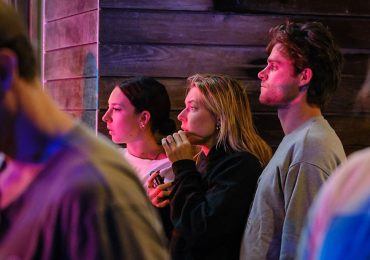JUSTIN Trudeau, the charismatic and often controversial Prime Minister of Canada, has resigned as party leader after a decade marred by scandal and public outcry.
From resurfaced blackface photos to allegations of inappropriate conduct, Trudeau’s tenure has been a turbulent one, clouded by a series of high-profile controversies.
AFPCanadian Prime Minister Justin Trudeau has resigned as party leader[/caption]
ReutersResurfaced pictures show Trudeau with his face and hands painted brown at an “Arabian Nights” party when he was a 29-year-old teacher[/caption]
AFP or licensorsTrudeau along with his wife and children posing for a family photo in controversial Indian attire during an official trip in 2018[/caption]
His resignation marks the close of a political era that began in 2013, when he became leader of the Liberal Party.
It would also be a precursor to Trudeau stepping down as Canada’s Prime Minister.
Under his leadership, the Liberals won three consecutive elections in 2015, 2019, and 2021.
However, Trudeau’s time in charge of the party has been plagued by a series of controversies.
Perhaps the most significant scandal erupted in 2019 when images emerged of him wearing brownface at a party in 2001 while he taught at a private school.
The photographs showed Trudeau, then a 29-year-old teacher at the West Point Grey Academy in Vancouver, dressed as an Arabian Nights character with his skin darkened, a turban, and robes.
This incident, along with two additional instances of Trudeau in blackface, sparked massive outrage.
While he issued public apologies, acknowledging the racism of his actions, the damage was done, and his leadership was called into question by many, particularly among Canada’s minority communities.
Trudeau had built much of his political persona around being a progressive, inclusive leader, championing diversity.
The brownface scandal was a stark contradiction to this image, leading to a significant loss of trust among some of his most loyal supporters.
CULTURAL APPROPRIATION ROW
Trudeau also faced widespread criticism for his extravagant displays of cultural appropriation during a 2018 visit to India.
The Prime Minister and his family wore traditional Indian clothing throughout the trip.
But their Sherwanis and elaborate sarees drew accusations of “overdoing it” and turned the attire into a political spectacle.
Critics argued the Trudeaus’ coordinated wardrobe was more about self-promotion than cultural respect, with some calling it “choreographed cuteness.”
While some defended the family’s choice of attire as respectful, the spectacle only added to a growing perception of Trudeau as out of touch with everyday Canadians.
GROPING ALLEGATIONS
In 2018, an incident resurfaced involving a woman who accused Trudeau of groping her at a 2000 event in Creston, British Columbia.
The allegation had first been reported by the Creston Valley Advance, with the unnamed journalist stating that Trudeau had inappropriately touched her.
Although Trudeau apologised at the time, the matter was largely dismissed in the press, and the woman chose not to pursue it further.
But as the story resurfaced, public opinion was divided.
Trudeau attempted to defend himself by stating he did not perceive the situation as inappropriate at the time, but his handling of the matter only added fuel to the fire.
His previous apologies now seemed insufficient, as the accusations remained a persistent stain on his leadership.
AFP or licensorsThe PM was previously accused of groping in 2018[/caption]
CBCTrudeau was also accused of ‘manhandling’ Opposition whip Gord Brown and elbowing NDP MP Ruth Ellen Brosseau (right) in the House of Commons[/caption]
THE ELBOWING INCIDENT
One of the most dramatic moments in Trudeau’s career came in 2016, when he was caught on camera elbowing NDP MP Ruth Ellen Brosseau and allegedly manhandling Opposition whip Gord Brown in the House of Commons.
The altercation occurred during a vote on Canada’s physician-assisted dying legislation.
The sight of the Prime Minister physically confronting MPs shocked many, and opposition leaders accused Trudeau of using “physical intimidation.”
His apology was swift but did little to quell the anger from MPs, especially from women in the House, who felt unsafe after the incident.
The outburst, combined with his history of gaffes, only reinforced a growing narrative that Trudeau’s leadership was increasingly erratic.
CHINESE ELECTION INTERFERENCE
In 2019, Prime Minister Trudeau accused China of attempting to interfere in Canada’s elections.
Reports revealed that Chinese-backed candidates were involved in the 2019 federal elections, with at least 11 candidates allegedly receiving support from Beijing.
Intelligence officials reported that China directed funds to candidates and placed operatives within Canadian political offices to influence policy.
Despite the accusations, China denied any involvement and claimed it had no interest in Canada’s internal affairs.
Trudeau responded by emphasising Canada’s efforts to protect election integrity and combat foreign interference.
COVID PROTESTS
The Freedom Convoy protests began in 2022 when truckers organised against the vaccine mandate for truckers crossing the U.S.-Canada border.
While initially a protest against the mandate, the convoy grew into a broader movement against COVID-19 restrictions.
Supporters of the protest, including some Conservative politicians, expressed concern over government overreach and pandemic measures.
Despite the peaceful nature of the protest, Ottawa became gridlocked, and there were fears of extremist rhetoric infiltrating the movement.
Trudeau denounced the protesters as a “small fringe minority” but faced significant backlash as the protests drew widespread attention and support.
ReutersCanada’s Prime Minister Justin Trudeau speaks with China’s President Xi Jinping at the 2022 G20 Leaders’ Summit in Bali, Indonesia[/caption]
AFPSupporters arrive at Parliament Hill for the Freedom Truck Convoy to protest against Covid-19 vaccine mandates and restrictions in Ottawa, Canada, in 2022[/caption]
AFPTrudeau’s potential resignation could mark the close of a political era that began in 2013, when he became leader of the Liberal Party[/caption]
END OF AN ERA
Despite his initial rise to power with promises of transparency, inclusivity, and progressive reform, Justin Trudeau‘s time as party leader has been mired by scandals that undercut his political capital.
His resignation is seen as a culmination of years of public scrutiny, with critics pointing to a leader who, despite his charm and progressive rhetoric, failed to live up to the ideals he supported.
This month, reports surfaced that Trudeau was considering resigning as leader of the Liberal Party amid growing calls for him to step down.
The Canadian prime minister has been facing a leadership crisis within his party, with his approval ratings at a historic low.
Trudeau’s political future had been in question after the resignation of his longtime ally, Chrystia Freeland, in December 2024, who criticised his handling of Canada’s relations with the United States and policy direction.
His decision to step down could have been further influenced by ongoing challenges within his party, a decline in voter support, and the anticipated threat of a Conservative victory in the upcoming federal election.
Prior to his Monday resignation, sources suggested Trudeau might announce his departure before a key party meeting, which would leave the Liberals without a permanent leader at a crucial time.
Concerns about Canada’s economy, including rising inflation, high housing costs, and the strain on public services, further compounded the situation.
Trudeau’s leadership had faced criticism for failing to address these issues effectively.
The growing support for Conservative leader Pierre Poilievre, who was leading in opinion polls by a significant margin, also added pressure on Trudeau.
Trudeau’s resignation will now mark the end of a political era in Canada.
He had led the Liberal Party since 2013, winning elections in 2015, 2019, and 2021.
But with his leadership under scrutiny and facing significant challenges both domestically and internationally, the prime minister’s departure had been seeming likely.
His resignation might now leave Canada at a crossroads, with questions about the future direction of the Liberal Party and the country’s political landscape.
Leave a comment








